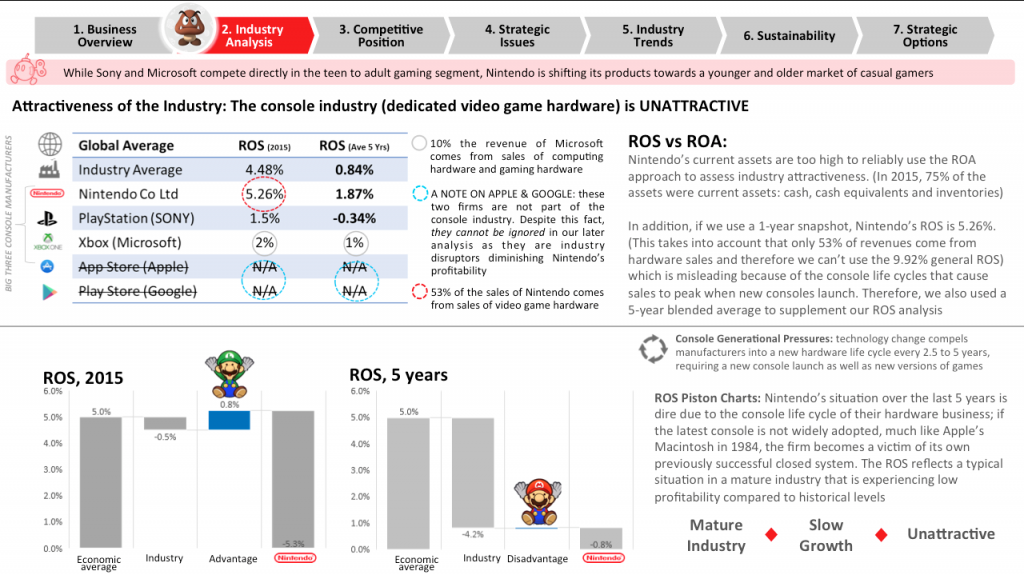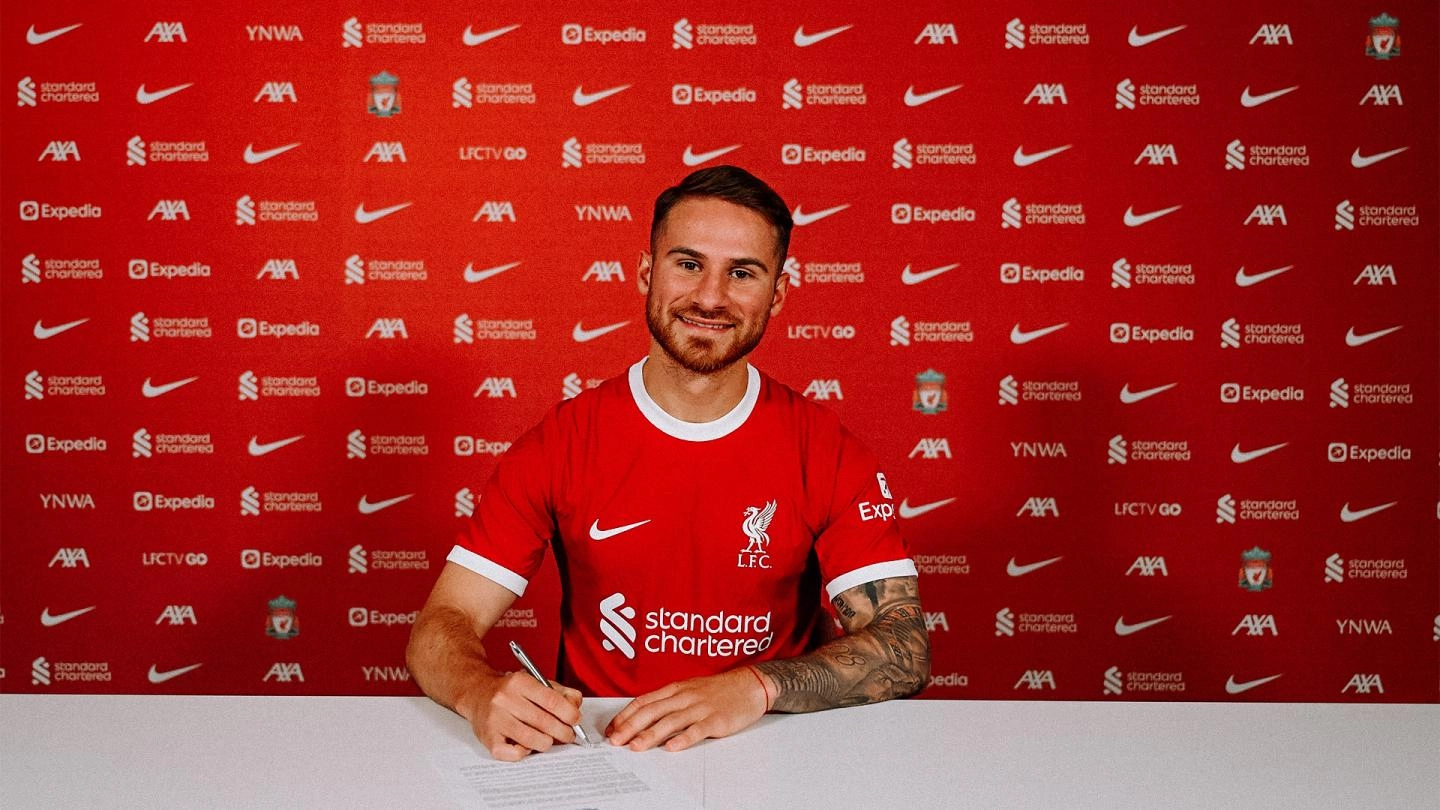Is Nintendo Playing It Safe? Analyzing The Company's Recent Strategy

Table of Contents
Reliance on Established Franchises
Nintendo's recent strategy heavily relies on its established franchises. While this approach offers significant advantages, it also presents potential pitfalls.
The Power (and Pitfalls) of Nostalgia
The power of nostalgia is undeniable. Titles like Super Mario Odyssey, The Legend of Zelda: Breath of the Wild, and various Pokémon installments consistently deliver strong sales, driven by the immense brand recognition and loyal fanbase associated with these beloved IPs.
- Super Mario Odyssey (2017) sold over 25 million copies.
- The Legend of Zelda: Breath of the Wild (2017) sold over 28 million copies.
- Various Pokémon games consistently achieve tens of millions of sales.
However, this reliance on established IPs carries risks. Over-saturation can lead to audience fatigue, and a lack of focus on new intellectual properties might hinder long-term growth and attract new players. The risk is that innovation may be sacrificed for the security of predictable revenue streams.
Limited Risk-Taking with New IPs
Nintendo's track record with new intellectual properties is mixed. While some, like Splatoon, have found success, the company hasn't consistently launched major new franchises that rival the popularity of its established giants.
- Star Fox Zero (2016) and Metroid Prime: Federation Force (2016) received mixed reviews and lower-than-expected sales.
- Compared to competitors like Sony (with Horizon Zero Dawn, Ghost of Tsushima) and Microsoft (with Halo, Forza), Nintendo's creation of consistently successful new IPs is less frequent. This highlights a reliance on their existing portfolio for continued success.
This cautious approach, while minimizing financial risk in the short term, could limit Nintendo's potential for long-term growth and diversification.
Hardware Strategy and the Switch's Lifecycle
Nintendo's recent strategy is inextricably linked to the Nintendo Switch's remarkable success.
The Extended Life of the Nintendo Switch
The Nintendo Switch has far exceeded initial expectations, enjoying an unusually long and successful lifecycle. This longevity has allowed Nintendo to focus on software releases rather than investing heavily in a new console generation immediately.
- The Nintendo Switch has sold over 122 million units globally (as of late 2023), exceeding many industry forecasts.
- This sustained success allows Nintendo to maximize profits from existing hardware and software.
However, the Switch's extended lifecycle also presents potential challenges. Its aging hardware, compared to the PlayStation 5 and Xbox Series X, is starting to show limitations, potentially impacting the ability to run future, more demanding titles. There's speculation about a successor, yet Nintendo's continued focus on the Switch suggests a strategy of maximizing profits from an existing platform.
Innovation in Hardware Features (or lack thereof)
While the Switch's hybrid nature (handheld and console) was innovative, Nintendo hasn't pushed major hardware boundaries in recent years. The focus has been on iterative improvements rather than revolutionary leaps.
- Compared to the competition’s advancements in processing power, graphical fidelity, and loading times, the Switch has remained comparatively underpowered.
- The Switch’s unique selling points—its portability and ease of use—remain its strongest assets, but these might be less compelling in future generations of gaming hardware.
Market Position and Competitive Landscape
Nintendo's recent strategy has solidified its position in specific market niches, while facing challenges in others.
Dominance in Certain Niches
Nintendo maintains a dominant position in the handheld and family-friendly gaming markets. Its iconic characters and focus on approachable gameplay continue to resonate with a wide audience.
- Nintendo consistently outperforms competitors in sales of family-friendly and party games.
- The Switch’s portable nature provides an advantage in the handheld market.
However, Nintendo faces stiff competition from Sony and Microsoft in other gaming segments, especially in terms of graphically-intensive AAA titles and online multiplayer experiences.
The Mobile Gaming Strategy and its Impact
Nintendo's foray into mobile gaming, with titles like Pokémon Go and Mario Kart Tour, has yielded considerable financial success and broadened its reach to a wider audience.
- Pokémon Go generated billions in revenue.
- Mobile games act as a gateway for new players to discover the Nintendo universe.
Yet, this strategy also presents a potential double-edged sword. The success of mobile games might divert resources from core console development and further reinforce the focus on established IPs.
Conclusion
Nintendo's recent strategy, characterized by a heavy reliance on established franchises and the extended lifecycle of the Nintendo Switch, demonstrates a calculated approach that prioritizes consistent profitability. However, this cautious strategy may also limit innovation and risk hindering long-term growth in a rapidly evolving gaming market. While the current approach has delivered success, a continued lack of investment in new IPs and cutting-edge hardware could eventually lead to a decline in market share. The company's future success may depend on finding a balance between leveraging its established strengths and embracing bolder strategic risks. What do you think about Nintendo's recent strategy? Share your thoughts and analysis of Nintendo's recent strategy in the comments below!

Featured Posts
-
 San Diego Padres Embark On Extensive Road Trip Starting In Pittsburgh
May 28, 2025
San Diego Padres Embark On Extensive Road Trip Starting In Pittsburgh
May 28, 2025 -
 Liverpool Transfer News Advanced Exit Talks Push Liverpool To Pursue New Signing
May 28, 2025
Liverpool Transfer News Advanced Exit Talks Push Liverpool To Pursue New Signing
May 28, 2025 -
 Lifetime Achievement Award For Rod Stewart A Celebration Of His Career
May 28, 2025
Lifetime Achievement Award For Rod Stewart A Celebration Of His Career
May 28, 2025 -
 Giai Ma Kho Bau 13 Trieu Usd Chuyen Chua Ke Ve Hai Tac Rau Den
May 28, 2025
Giai Ma Kho Bau 13 Trieu Usd Chuyen Chua Ke Ve Hai Tac Rau Den
May 28, 2025 -
 National Lottery Reminds 1m Winner Of Approaching Deadline
May 28, 2025
National Lottery Reminds 1m Winner Of Approaching Deadline
May 28, 2025
